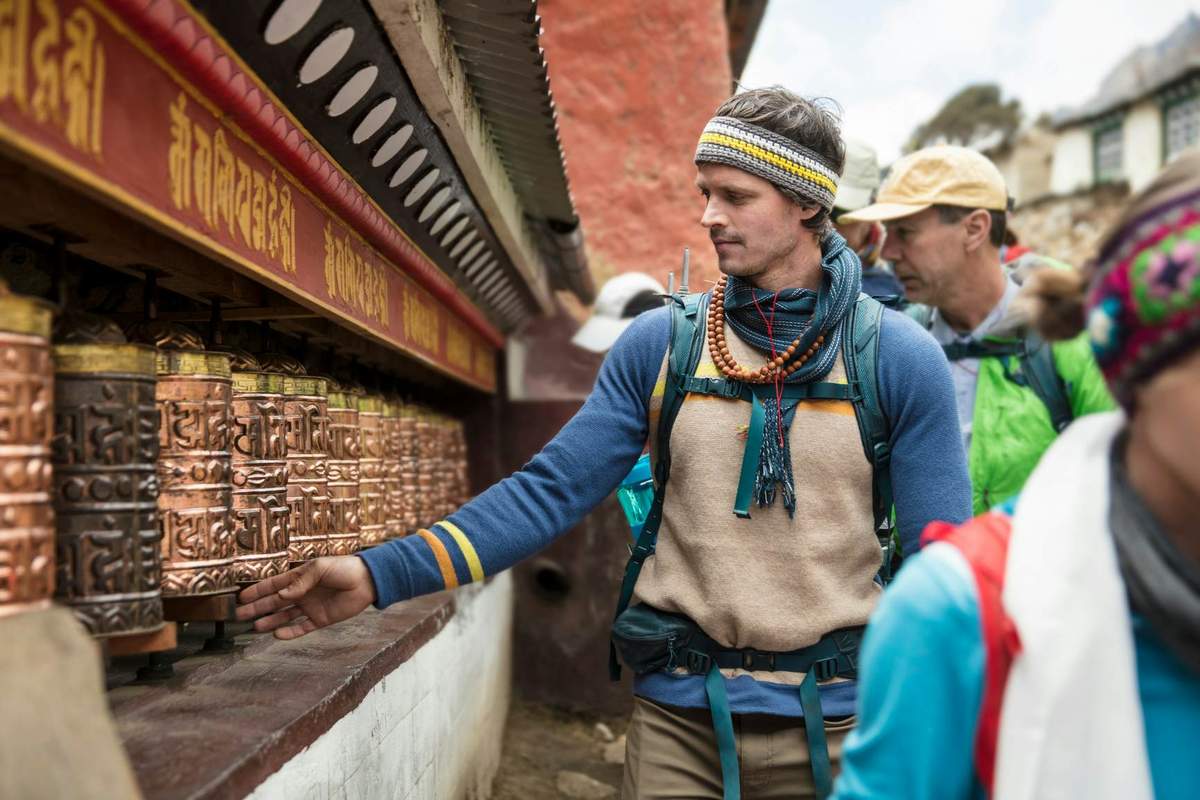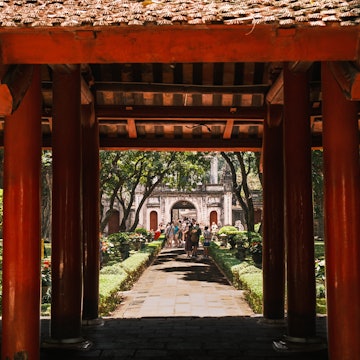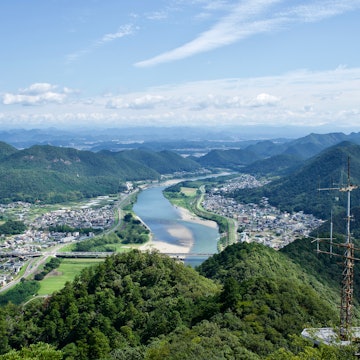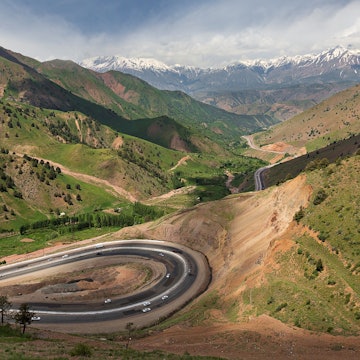

The Himalaya and the town of Bandipur, Nepal. traumlichtfabrik/Getty Images
Whether you’re traveling around Nepal by air, public bus or private car, you can be sure of a ride that’s unbelievably scenic.
Regular domestic flights pass along, between and above the highest mountains in the world. Slower overland travel has the benefit of winding through lush river valleys, beside terraced farmland and rural villages, with mountains coming into view at surprising points along the way.
Wedged between China and India, Nepal looks rather small on a map – yet its mountainous terrain and general lack (or poor quality) of transport infrastructure make getting around slow going. During your trip, you might combine private transfers with a driver (by 4WD or regular cars) with local buses or domestic flights.
Since safety is a serious concern for all modes of transport, it’s important to weigh your options in relation to your budget, time constrictions and risk tolerance when considering how to explore Nepal. But short-and-sweet flights to remote mountain airstrips and slow overland routes have one thing in common: they offer incredible views.
As you plan your journey to and around this wonderful if challenging country, here’s what you need to know about getting around in Nepal.

Hiring a private vehicle
Whether you’re sightseeing within Kathmandu or Pokhara, wanting to travel between these two cities (a distance of 200km) or needing to be deposited at a remote mountain trailhead, taking a private vehicle and driver is generally the most comfortable way of traveling.
It’s also among the most expensive.
Private cars and public buses travel on the same roads, which are often pot-holed, dusty, muddy – or a combination of the three. Roadwork and traffic jams are also a pitfall of road travel in Nepal, and both can add hours to what would seem to be short journeys. But traveling by private car means you can stop for a rest when you wish, benefit from a better suspension and enjoy the skills of a safe, experienced driver (usually).

Taking taxis
Regular taxis are a common way to get around in Kathmandu and Pokhara. You can hail them from the side of the road, from taxi stands in some areas or through your hotel. Taxis in Nepal don’t generally use a meter, even if the vehicle is equipped with one; you should count on negotiating your fare before getting in. If you’re not sure how much a journey should cost, ask at your hotel to get a rough idea before heading out.

Riding the bus
Nepal is generally a budget-friendly destination – yet the cost of taxis, private cars and flights can certainly add up. If you’re on a tight budget, taking local or tourist buses is the way to go. But before you set off, you should prepare yourself for slower journeys and a significant amount of discomfort if you travel Nepal by bus.
Larger than standard buses in the country, tourist buses are the more comfortable choice. Their drivers are generally competent, you’ll have your own seat (no roof seating or standing in the aisles) and there may be air-conditioning (although how well it works is often down to chance). Kathmandu–Pokhara, Kathmandu–Sauraha (Chitwan) and Pokhara–Sauraha are the main tourist bus routes, with departures generally early in the morning that arrive in the afternoon. You have to purchase tickets in advance, which your hotel can easily help facilitate.
Local buses are another story. You can catch these almost anywhere you might want to go, from major cities to remote towns, for small change. (Most cities have multiple bus stands, so take care to head to the right one.) You usually don’t need to buy a ticket in advance, though it’s a good idea around festivals. The drawbacks of traveling by local bus are unreliable departure times, old and worn-out vehicles, questionable driving and cramped seating. Bus accidents – and passenger deaths – are dismayingly common and usually involve local rather than tourist buses.
Kathmandu and Pokhara also have local buses, which are an inexpensive way of getting around town. You might find these tricky to catch, however, if you don’t have a functional knowledge of Devanagari script. In Kathmandu, the large, green, cooperatively run Sajha Yatayat buses are fueled by electricity (one of the few environmentally friendly means of transportation in Nepal, beyond walking) and can be a good way of crisscrossing the city.
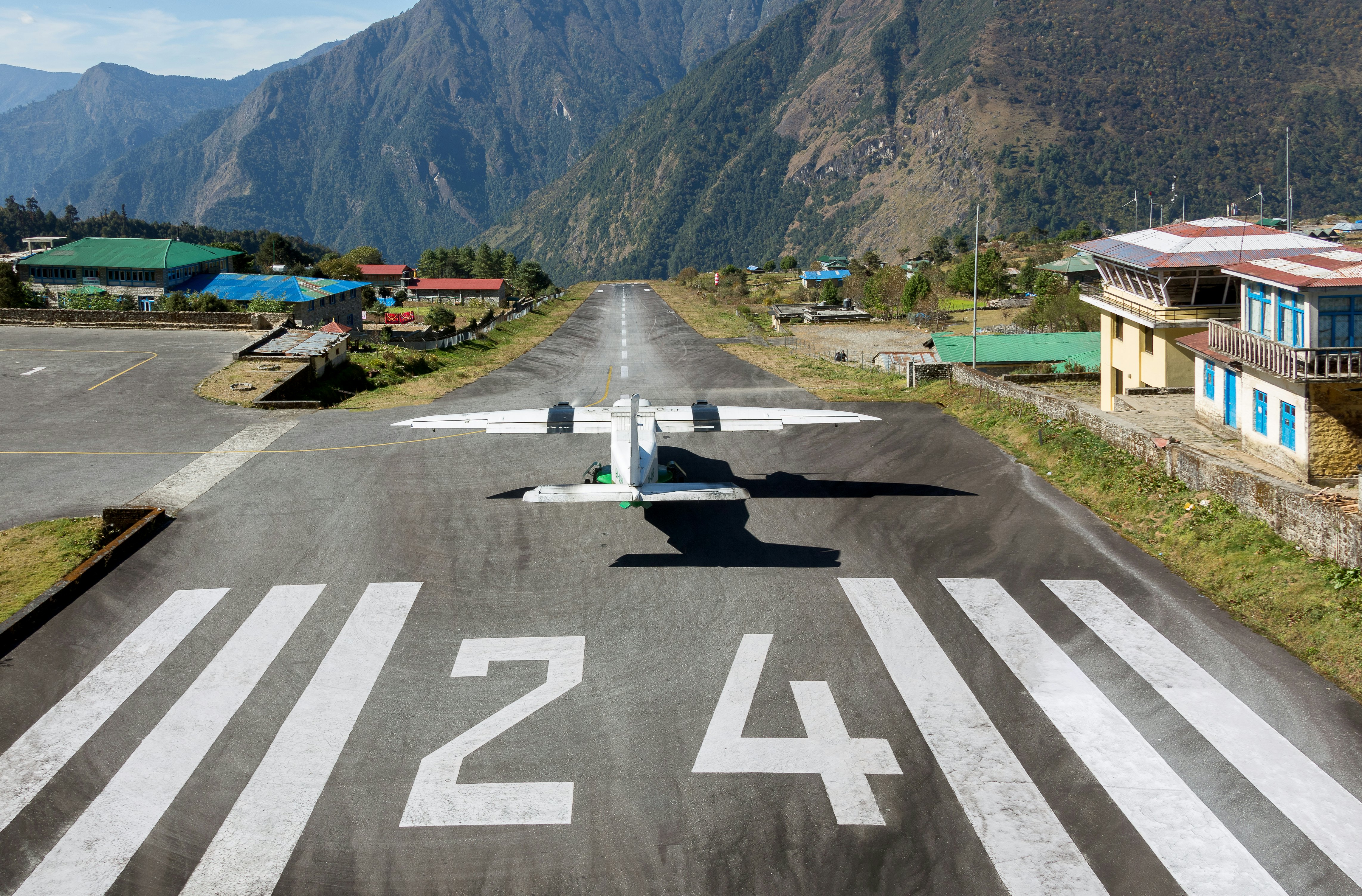
Flying by plane
Although Nepal only has three international airports (at Kathmandu, Pokhara and Lumbini), you’ll find many small airports and mountain airstrips around the country. Taking a domestic flight is essential (or near-essential) to access many long-distance trekking trails, such as the Everest Base Camp trek, as there’s no road access.
Even when domestic flights aren’t essential, they can save an enormous amount of time, making flying one of the easiest ways to travel in Nepal. Compare a 30-minute flight between Kathmandu and Pokhara with a 10-hour bumpy overland trip along the Prithvi Hwy (the journey is supposed to take 5 hours, but when roadwork and traffic jams are factored in, this timeframe would be a miracle). Or compare a 30-minute flight between Pokhara and Jomsom with a 10-hour, 4WD journey along winding roads through the Kali Gandaki Gorge.
There are, however, some serious drawbacks to flying. Flights are frequently delayed or canceled due to weather (in the winter, in monsoon season and really all year long). You’ll need to factor in buffer time, especially if you’re flying somewhere like Lukla (gateway to the Everest region), where you can’t fall back on road transport. You wouldn’t want to miss an international flight because of 3 days of fog in Lukla.
Safety is the other major concern. On the one hand, 30 minutes in an airplane with an experienced pilot may seem safer than 10 hours on Nepal’s dangerous roads. On the other, Nepal has seen more than its fair share of aviation accidents. Nepali pilots are generally well-trained and experienced – hats off to anyone who can fly in such challenging conditions – but airplane maintenance is often not up to international standards, and runways in difficult-to-reach locations can be in poor condition.
Another common flight route is the Everest sightseeing flight from Kathmandu. These flights depart Kathmandu early in the morning and make a round trip east, offering great views of Mt Everest and other Himalaya giants. While your plane won’t fly over Everest or even approach it, you’ll be able to see it clearly on the horizon. These flights are purely for sightseeing rather than a way to get from one place to another – but they’re low-risk because they travel at quite high altitudes, so aren’t too affected by mountain weather conditions.
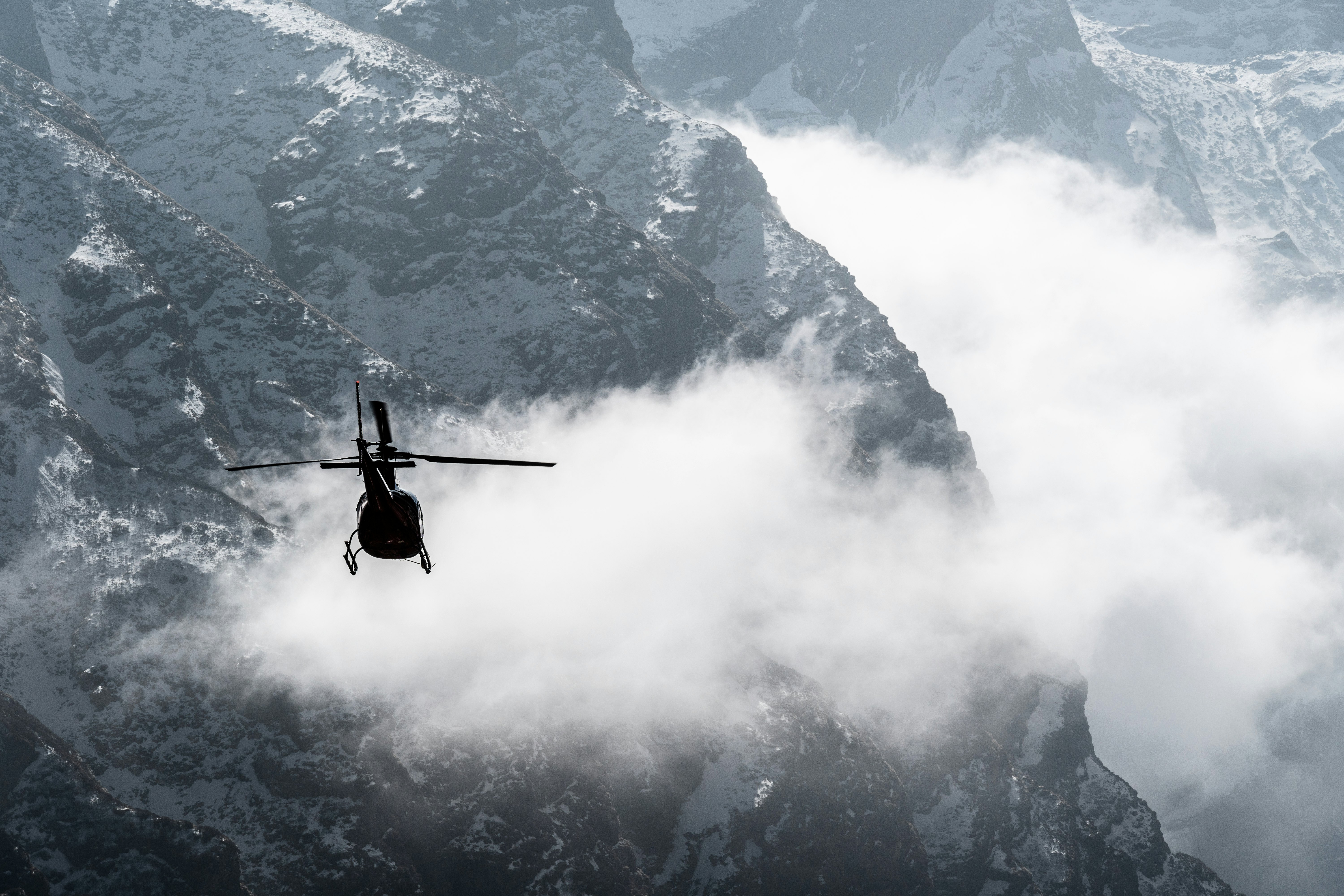
Taking a helicopter flight
Helicopter flights are usually restricted to sightseeing flights and rescue operations. Unless you’re a VIP, charter heli flights aren’t a common means of travel and come with a hefty price tag. If you have a generous budget but not much time, heli-hiking trips can be arranged in some areas, particularly the Everest and Annapurna regions: you can take a helicopter from Kathmandu or Pokhara into the mountains, trek for a few hours and then return by air. While far from the cheapest way to travel around Nepal, this is a wonderful luxury for adventurous trekkers on tight-ish timeframes.

Going by bike
With wild drivers and minimal bike lanes, Nepal’s road conditions don’t make cycling a very appealing option in most parts of the country. Yet the hilly terrain means mountain biking is an increasingly popular sport, especially in the hills around Kathmandu. You can rent cycles in Thamel (in central Kathmandu) and go independently or with a guide (Socialtours is an excellent one). Similarly, cycling through farmland and villages is a popular activity in Chitwan, where the land is flat and there isn’t much traffic. Pedaling between rice fields and villages as the sun sets is a lovely way to end a day in Chitwan.
Accessible travel in Nepal
Unfortunately, Nepal is not a very accessible travel destination for travelers who use wheelchairs or who have other mobility issues. The poor condition of the roads makes getting around uncomfortable for everyone and would be especially challenging for travelers with extra needs. Yet those with disabilities who are traveling with companions without mobility issues may be able to get around by hiring a car and driver and taking domestic flights when necessary. Alternatively, travelers with disabilities could limit their travel to Kathmandu and avoid difficult long-distance travel throughout the country.






